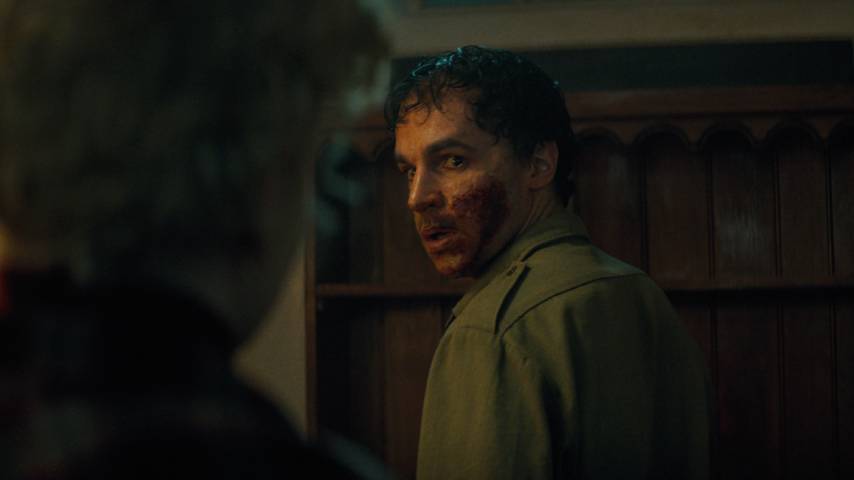Nobody knows what it’s like, to be the Wolf Man
Leigh Whannell returns to the Universal vein and shoots this werewolf tale full of modern anxiety.
Photo: Universal Pictures
Fear is contagious, and it can evolve into something worse. So too can the false certainty that the things we fear can be outplanned or outwitted. An anxious film initially written during the height of COVID, Wolf Man is a hairy hybrid of creature feature and family tragedy much like George Waggner’s ‘40s original. It’s also another clever Universal Monster update from filmmaker Leigh Whannell (and Corbett Tuck, his co-writer and wife) after he saw through The Invisible Man and focused on his victim. Wolf Man eschews the lore. There are no full moons, beds of wolfsbane, silver bullets, or pentagrams here. “Wolf” is barely said out loud, let alone “werewolf.” In their place are feverish sweats, inherited weaknesses, and a film torn between ripping out a throat and licking its own wounds.
Wolf Man mostly takes place over a single night, on a single farm. Blake (Christopher Abbott) has just returned to the isolated homestead, along with his wife Charlotte (Julia Garner) and daughter Ginger (Matilda Firth), after his missing oorah dad has finally been declared dead. From the second Blake’s father calls 7:00 AM “0700” in the tense, lushly shot prologue, the main dynamic is telegraphed: Overprotective, angry military dad traumatizes his son out of fear for his safety; son who runs off to be a city boy fails to entirely avoid repeating the past. Add lycanthropy, and stir.
This early metaphor can feel a little mangy, its emotional logic falling apart in nasty little clumps, especially since the family lacks characterization after their introductory scenes. Blake’s temper with Ginger is brief and quickly forgotten. He and Charlotte are loving, but fragile. Their spats and the tension between them is lived-in, the hurt as tired as the gestures made to heal it. Whannell and Tuck make the most of these grounded conflicts, especially since, once the family heads into the woods, a different allegory rears its head and bays at the moon.
Encountering a monstrous figure on a moonlit road, who slices Blake’s arm and chases the group into his childhood home, the freaked-out family stays in shock as the inevitable infection and transformation of its patriarch unfolds over the evening. This is a process that takes up most of the runtime, and also transforms Wolf Man from a film that feints at being about “trauma” into a film about the harsh, random cruelty of death. This became tangible thanks to the pandemic, with loved ones slipping away before anyone could even wrap their heads around it. Blake doesn’t writhe on the floor as his face stretches into a snout. Rather, he rapidly succumbs to something; he gets sweaty, clammy, incapable of communicating. Whannell washes the film out into something grim and grimy, his monster worsening with each scene.
